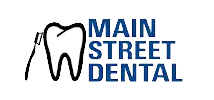Tips for Recovery After Tooth Extraction
Posted by Mike Young Nov 06,2022
Take an over-the-counter pain reliever
Many patients find that their pain is significantly reduced with over the counter medications such as ibuprofen or acetaminophen. Ask your oral surgeon which medication is best for your individual treatment plan. Generally, these medications will be recommended before the extraction procedure and as needed for a few days after the procedure to manage any discomfort. If your surgery was more complex and included sedation, your doctor may prescribe an additional pain medication that should be taken as directed.
Schedule an appointment after you’ve been taking as prescribed to ensure you’re healing properly. If you experience abnormal swelling, bleeding, or other concerning symptoms, contact your dentist right away for further instructions. If you’re still experiencing pain after a few days, call your oral surgeon to schedule an appointment so they may determine if additional treatment is needed.
-Dr. Blalock
Our Oral Surgeons in Zanesville, OH
At Coshocton Dental Group, our patients are our top priority. We take your comfort very seriously and offer modern solutions like tooth replacement by a board-certified oral and maxillofacial surgeon. If you’re ready to schedule your first appointment, please contact us today! on Social Media
When a patient requires anesthesia during an oral surgical procedure, it’s important for the patient to follow certain guidelines after surgery to reduce the risk of complications and ensure a healthy recovery. Before your surgical visit, thoroughly review the aftercare instructions provided below with your oral surgeon to ensure you understand how to care for yourself in the hours and days following your procedure. These instructions are specific to each patient based on his or her unique treatment plan and the severity of underlying oral health issues being addressed. If you have any questions before your appointment, it’s best to contact your oral surgeon directly. They
Swish with saltwater mouthwash
For the first day or so, you should rinse your mouth out every few hours after the procedure to prevent a dry socket from forming. To ease the discomfort and swelling that occurs afterwards, you can also drink cold beverages and eat cold foods.
You can also apply a salt-water solution to the affected area to promote healing and comfort. Saltwater will both help reduce inflammation and kill bacteria, so swishing with it for around 15 minutes will help to reduce pain and speed up the healing process.
However, don’t add salt directly to the water. Instead, dissolve a half teaspoon of salt into eight ounces of warm water and use it to rinse your mouth out with. Be sure to spit it out afterward instead of swallowing it!
If saltwater isn’t soothing enough for your tooth extraction recovery, you can use a painkiller to help with the discomfort and pain. Take one or two tablets of ibuprofen or aspirin, but be sure to follow all dosing instructions on the label. If you experience any bleeding or other complications from the extraction procedure, it’s best to go straight to your dentist’s office to have him or her take a closer look.
[The Ultimate Guide to Dental Care]( | [What is an Endodontist?]( [When Should I Schedule My Child’s First Dental Visit?]( [What Is Gingivitis?]
Limit physical activity for the first 24 hours
After a tooth extraction, it is normal to feel some pain and soreness. However, you should limit your physical activity for the first 24 hours after an extraction procedure. A sudden increase in activity can cause the blood clot to become dislodged from the treatment site. When this occurs, it increases the risk of the treated tooth becoming infected due to bacteria being introduced to the empty socket.
For this reason, make sure not to chew on the empty side of your mouth for the first day after an extraction. Avoid brushing and flossing near the extraction site for the first few days after your procedure. Instead, gently rinse your mouth out with salt water to help keep the area clean. If you experience any heavy bleeding or continued pain after the first 24 hours, contact our office immediately. We will need to evaluate your condition and determine if you need to come in for further treatment.
Help patients take proper care of their smile with detailed dental care information and oral health education tools. To learn more, visit [practice-name].
At our practice, we offer comprehensive care to help patients achieve healthy smiles. In addition to general dentistry treatments like teeth cleanings and fillings, we also offer advanced procedures such as dental implants and teeth whitening. For more information, please schedule a consultation with one of our experienced dentists today!
Avoid using a straw for a few days
It’s normal to experience some difficulty while chewing or speaking after you’ve had a tooth pulled. These challenges should pass within a few days, but it’s important that you avoid sucking through a straw during that time. Sucking through a straw can loosen the blood clot that formed over the socket and seal it shut permanently, causing bone damage and resulting in a condition known as dry socket. Dry sockets can leave you dealing with excruciating pain and even infection. Be sure to use a soft-bristled toothbrush when you brush your teeth to avoid irritating the site. You should also rinse with salt water to keep the extraction site clean and prevent an infection. Over-the-counter pain relievers can also help manage the discomfort you might experience while you heal and take care of any swelling you may experience. Contact our office if you have additional questions about recovering from an extraction.
You can schedule your consultation with our team by calling our office at [phone number] or by reaching out to us online. We’ll be happy to answer your questions and address your concerns! We look forward to helping you achieve your oral health goals.
- The [practice name] team
More Blog Posts
Location
3195 S Main St Ste 225,
South Salt Lake, UT 84115
Office Hours
MON - FRI9:00 am-5:00 pm
SATBy appointments only
SUNClosed

